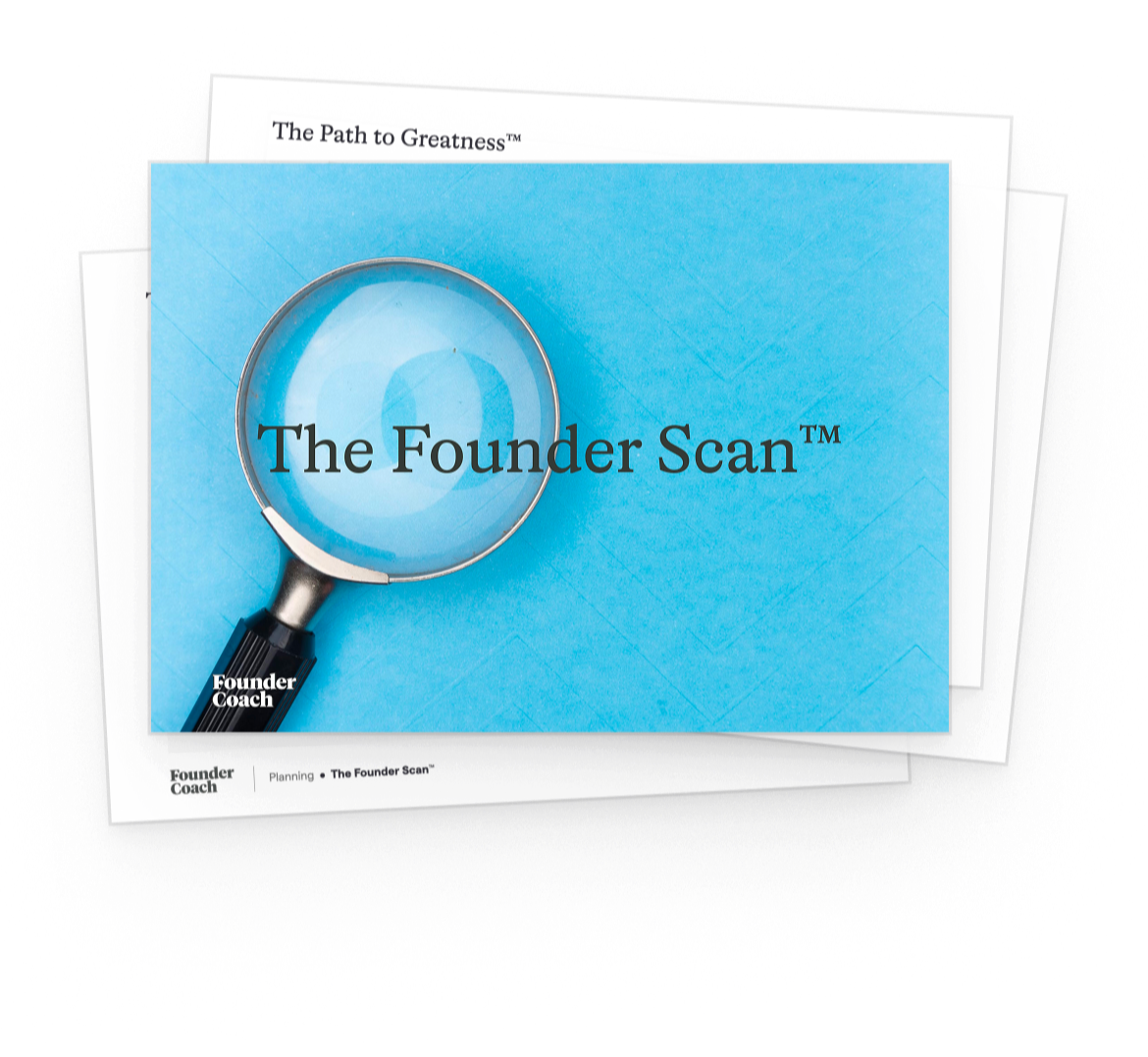How to Choose The Right Coach for You

Not all coaches are created equal. From misaligned chemistry to one-size-fits-all credentials, the wrong coach can cost you more than money—it can cost you time, momentum, and clarity. This guide unpacks the biggest myths in the coaching world and shows you how to choose a coach who can actually get you where you need to go.
Key Takeaways
- Coaching isn’t one-size-fits-all. Pick someone with experience relevant to your journey.
- Certification ≠ impact. Look for proven results, not just credentials.
- Great coaches go beyond questions. They offer frameworks, insights, and real support.
- Chemistry helps, but fit matters more. Prioritise depth and expertise over vibe.
- 1:1s aren’t everything. The best coaches blend tools, content, and peer support.
- Clarity is key. Know what you need and choose accordingly.
Choosing the right coach is one of the most leveraged decisions you can make.
A great coach helps you avoid rookie mistakes, make faster progress towards your goals, and build the kind of confidence that drives results. So much of success comes down to confidence—confidence in your decisions, your instincts, and your communication.
But not all coaches are created equal.
The right coach has already been on the journey you’re on—or one close enough to understand its weight. They help you tackle the right challenges at the right level and bring structured thinking and frameworks that get results—not just insight, but action.
The wrong coach might still be a kind person. They might ask thoughtful questions. But if they haven’t walked the path, they’ll often steer you toward the wrong outcomes. They may focus on generic tools, unrelated struggles, or surface-level reflections. And that misalignment comes at a cost—not just in money, but in time and momentum.
There are five big myths about coaching that can steer people in the wrong direction. Let’s look at each myth—and the reality underneath it.
Myth 1: Coaching is a Commodity
Generic Approach ≠ Great Result
There’s a tendency to see coaches as interchangeable—as if the difference is mainly one of personality. But in reality, coaches vary enormously by skill set, domain experience, and perspective.
While many draw on the same core skills—like empathy, curiosity, and groundedness—the lens they bring to your problems is shaped by their own journey. That’s why the type of coach you choose matters.
Here are a few of the most common types:
- Life coaches – Generalists, often focused on purpose, goals, and fulfilment. Anyone can be a life coach.
- Relationship coaches – Improve dynamics with co-founders, reports, or life partners. Many have psychology backgrounds.
- Executive coaches – Help you develop leadership capabilities and navigate org dynamics, usually without deep domain experience.
- Functional coaches – Specialise in helping you level up in specific areas like product, engineering, or sales. These have already been in the role.
- Skill coaches – Support mastery in areas like communication, productivity, or mindset. They have learned a lot about these skills and are master practitioners in their own right.
- Career coaches – Help you find a new career path and get a new job. Often former recruiters or people who achieved senior positions early in their career.
- CEO coaches – Help you operate more effectively in the chief executive role. Often retired CEOs themselves and quite rare.
- Founder coaches – Help you become a more capable founder. These are ex-founders themselves, and also quite rare. They bring hard-won experience and insight from scaling companies firsthand.
The more clearly you can articulate what you want, the more likely you are to find someone who can truly help.
Myth 2: The Best Coaches Are ICF-Certified
Certified ≠ Qualified
ICF (International Coaching Federation) is often seen as the gold standard of coaching credentials. And to be fair—it’s one of the most recognised names in the space.
But here’s what most people don’t realise: coaching isn’t regulated. Anyone can call themselves a coach. And ICF accreditation, while rigorous in some areas, isn’t necessarily a mark of coaching excellence.
To get accredited, you need to go through an ICF-accredited training program—and both the trainer and the trainee pay fees to the ICF. I’ve taken a number of these programs, and frankly, some were awful.
In practice, ICF certification is often more of a confidence-booster for early-stage coaches than a signal of elite performance. It’s more of a security blanket than a badge of mastery.
What should you look for instead?
- A track record of clients like you
- Testimonials with real transformation stories
- Evidence of impact, not just process
At the top of the market, ICF-certification isn’t what sets the best apart. Results do.
Myth 3: Coaches Just Ask Good Questions
Open Questions ≠ Coaching
There’s a persistent myth—especially in coaching circles—that great coaches “just ask good questions.” It’s tidy, teachable, and scalable. But it’s also misleading.
A top coach doesn’t stick to questions alone. They shift between roles depending on what the moment calls for:
- Facilitation (The Guide) – They use structured processes that help you think clearly and make better decisions. Many coaching methods—from GROW to ACE—provide structured thinking. The best coaches adapt them to your context.
- Caring (The Champion) – They bring warmth and belief, often more than you have for yourself. They offer encouragement, support, and—when needed—tough love.
- Thought Partnership (The Interviewer) – They help you think better. A good coach listens deeply, asks curious questions, and reflects your own patterns back to you. Talking to a sharp thought partner reveals insights you can’t get alone.
- Mentoring (The Sage) – They offer mental models and frameworks that help you structure your thinking. Instead of telling you what to do, they show you how to approach the problem.
- Advisory (The Advisor) – Sometimes you need advice. Great coaches know when to offer it and how to make it useful—without attachment. They take responsibility for the impact it has.
- Experience Sharing (The Storyteller) – Coaches who've seen similar challenges can share stories that help you feel less alone and make clearer decisions. Great coaches share stories efficiently and always tie them back to your context.
- Mindset Work (The Mentalist) – They help you access new ways of seeing. Through reframing, visualisation, values work, and embodiment, they help you shift how you show up under pressure.
A great coach isn’t bound to one modality. They blend methods. They flex between styles. They know when to hold space and when to push. And most importantly, they help you make progress on what actually matters.
Myth 4: The Right Coach Depends Mostly on Chemistry
Chemistry ≠ Effectiveness
This is the most common trap: choosing a coach because you “just click.”
Chemistry feels good. It builds trust. But it’s a poor proxy for whether a coach can actually help you get where you want to go.
The emphasis on "chemistry calls" comes from Co-Active life coaching, which explicitly rejects the need for expertise. And for life coaching, that’s often true. The goal is fulfilment, not masterful execution.
But if you’re leading a company or dealing with a complex issue, expertise matters. Would you hire a tennis coach who’s never played tennis? Or a product coach who’s never built a product?
Similarly, would you ever hire someone in your company based on chemistry alone? Of course not. You’d expect domain experience too.
Unfortunately, you even see well-meaning exec coaches present themselves as a CEO coach without ever having been in the role. That’s not inherently wrong, but it is misleading.
I’d argue there is such a thing as a best coach… and it depends on the coachee:
- The best coach has experienced the journey the coachee wants to go on, and gone one or two steps further.
- The best coach has exceptional coaching skills. They listen, stay curious, and generate insight in the very first session.
Between a coach who meets these three criteria and one who “just clicks,” I’d bet on the former nine times out of ten. Of course, chemistry matters—but it shouldn’t be the thing you optimise for.
Myth 5: The Best Coaches Only Do 1:1s
1:1s ≠ Full Stack Coaching
There’s a romantic notion that the gold standard of coaching is one-on-one. The deep focus. The tailored conversation. The "just me and my coach" energy.
And sure—1:1s can be powerful. They create space for depth, honesty, and clarity. But here’s the twist: the best coaches don’t just coach—they build coaching systems that get results.
They codify insight. They create frameworks. They deliver repeatable results at scale. That’s why many of the top coaches blend 1:1s with training, diagnostics, group sessions, and content.
It’s not because they’re trying to “scale themselves.” It’s because they’re trying to serve you better.
1:1s are easy to deliver. But transformational coaching is about results—and that often means providing models, tools, and peer accountability that go beyond conversation alone.
I personally believe a blended, results-driven approach is the most powerful: one that combines direct coaching with structured content, a library of tools, and a peer group that sharpens your thinking.
Don’t assume private equals better. Ask instead: What structure will drive my growth?
How to Choose a Coach: A 3-Step Guide
By now, it should be clear: not all coaches are created equal. They differ in what they focus on, how they work, and what they’ve lived through. So when choosing a coach, don't just look for someone who feels good to talk to—look for someone who can take you where you need to go.
Step 1: Start with the type of coach
Go back to the first myth. Coaching isn't a commodity. The kind of coach you need depends on your current context and goals. Are you navigating founder dynamics? Leading a scaling team? Working on your mindset? Look for someone who specialises in the kind of journey you're on.
Step 2: Identify the support style that fits
From myth three, you know that coaching isn’t just about good questions. The best coaches play multiple roles. Think about what style of support you need most right now. Structured facilitation? A sounding board? Experience sharing? Clear frameworks? Knowing what kind of support unlocks you is key.
Step 3: Evaluate more than chemistry
Chemistry opens the door—but it’s not enough. As myth four showed, true fit comes from depth. Ask yourself:
- Rapport – Can I be radically honest with this person?
- Relatability – Do they understand the nuances of my situation?
- Respect – Do I respect their track record, thinking, and presence?
The right coach won’t just make you feel better. They’ll make you better.
Working with the right coach isn’t just about growth—it’s about acceleration. You get to unlock the next version of yourself faster, more cleanly, and with fewer hard knocks.
The best coaches don’t just ask you great questions. They help you ask yourself better ones. And they bring the tools, experience, and wisdom to help you answer them powerfully.
So if you’re ready to invest in your own leadership, start by asking: what kind of coach will help me become who I need to be next?

